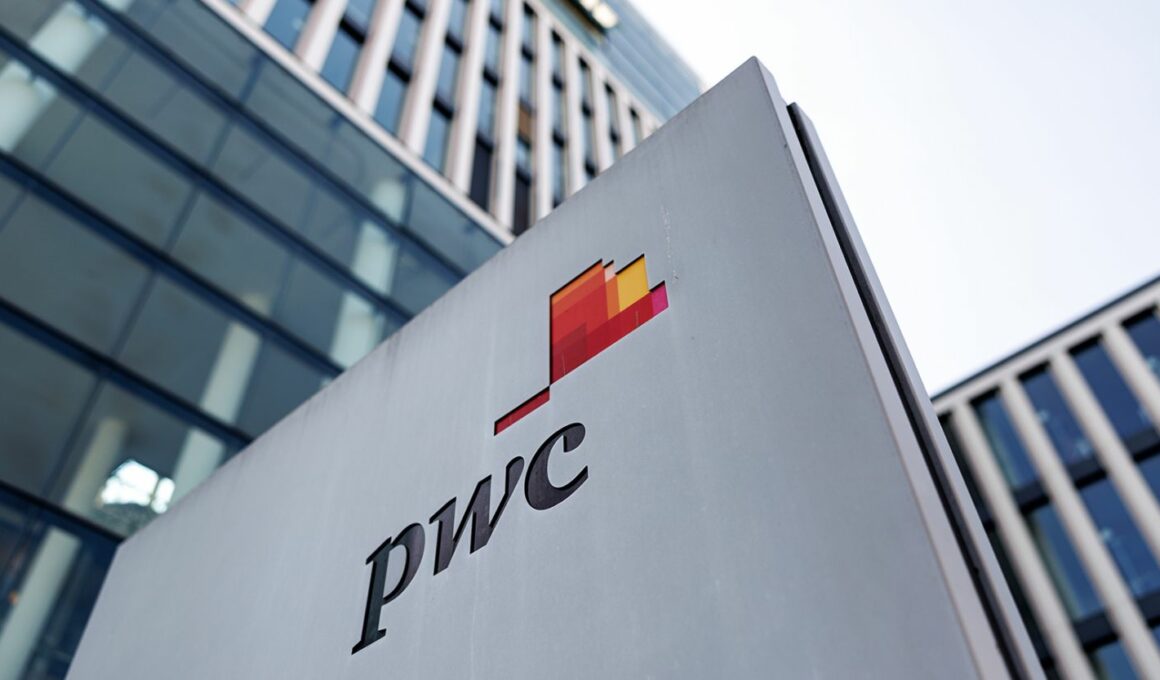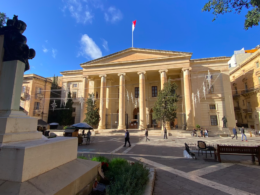The Vitals Global Healthcare (VGH) scandal has cast a long shadow over Malta’s political and corporate landscape, with as yet unproven allegations of fraud, mismanagement, and conflict of interest enveloping key government officials and business entities. At the heart of this scandal, one name stands out, though it has largely avoided the intense scrutiny faced by others: PricewaterhouseCoopers (PwC). As auditors and consultants to the VGH project, PwC’s involvement was deep and extensive, raising serious questions about their role in the saga and why they have yet to face the same consequences as other major players.
PwC: The Architects Behind the Vitals Bid
PwC was far more than a passive observer in the VGH project. They had intimate knowledge of the transactions and financial structures that would eventually become the subject of criminal and civil investigations. Engaged from the earliest stages by the Vitals project promoters—including Ram Tumuluri, a controversial figure who remains uncharged despite his central role—PwC provided critical due diligence that enabled the entire deal to proceed. The audit firm even assisted VGH in drafting their bid for the original tender—a fact revealed in testimony during the ongoing criminal case.
PwC was far more than a passive observer in the VGH project. They had intimate knowledge of the transactions and financial structures that would eventually become the subject of criminal and civil investigations.
PwC’s involvement wasn’t limited to simple advisory services. They were directly responsible for approving the financial viability of the VGH-related companies, including the Bluestone Group, and for conducting background checks on the shareholders and directors involved. During court testimony, PwC representatives detailed their vetting process, stating, “We would request accreditation from the company, share register, the identities of the directors… screening for adverse news would then be carried out on the individuals and the company.” Despite these procedures, no serious red flags were raised that might have halted the project. PwC remained on board for years, supporting the same shareholders and directors who were at the centre of the mounting public scandal.
Keeping the Wheels Turning Amid Accusations of Fraud
What’s most troubling is how long PwC maintained their professional relationship with VGH, even after the deal’s cracks began to show. By 2018, allegations of fraud and mismanagement were public, with media outlets and opposition politicians calling for investigations into how the concession for three Maltese hospitals had been granted to Vitals. Yet, PwC continued to work with VGH and its associates, helping them prepare business plans and project management reports, including those related to the Gozo General Hospital.
Despite these increasingly public allegations, PwC didn’t terminate its relationship with Steward Health Care (VGH’s successor) until February 2023. It was only then that PwC invoked a termination clause due to “adverse news.” By then, their long-standing involvement had raised serious doubts about whether they had knowingly continued to provide services to a fraudulent enterprise.
Why Was PwC Left Off the Hook?
The recent criminal proceedings against ex-Labour Ministers and others have shone a new light on PwC’s involvement. PwC’s key personnel, including Michel Ganado, were called to testify about their role in advising VGH. Ganado admitted that PwC had been responsible for drafting VGH’s business plan and social impact assessments, and even helped prepare their proposal for the hospitals concession.
Yet, despite their deep involvement, no PwC officers have been formally charged in connection with the scandal. Many observers have been left scratching their heads as to why this globally renowned firm has seemingly escaped the legal repercussions that have befallen others. Some have even speculated that PwC may have been shielded by powerful interests in Malta, with suggestions that they were treated with “velvet gloves” by the inquiring Magistrate while others in the private and public sectors faced criminal charges.
The failure to hold PwC accountable contrasts starkly with how the firm has been treated in other jurisdictions. In China, for instance, PwC was recently embroiled in a scandal involving flawed audits that led to widespread losses for investors. According to a Financial Times report, PwC was heavily penalised by Chinese authorities for its failure to adequately scrutinise companies it audited. In a rare show of force, PwC’s offices in China were raided, and their local operations faced sanctions, demonstrating that even powerful international firms are not above the law. The contrast between how China handled PwC’s malfeasance and the leniency shown in Malta is striking.
Why the Silence?
In Malta, PwC’s intimate involvement in the Vitals project has been largely overlooked in public discourse. Despite revelations that they were deeply entrenched in both the original Vitals deal and its successor, Steward Health Care, PwC has not been subjected to the kind of investigative scrutiny that many believe is warranted. Neither Magistrate Gabriella Vella nor the court-appointed experts saw fit to include PwC in the inquiry that led to charges being filed against several public officials and business executives. Local mainstream media has looked the other way.
This apparent omission raises serious concerns about the fairness and thoroughness of the investigative process. How could PwC—a firm that played such a crucial role in facilitating the VGH concession—be left out of the criminal proceedings when others who had marginal involvement were charged? Moreover, why haven’t the authorities delved deeper into their decision to continue working with VGH and Steward, even after allegations of fraud had surfaced?
Double Standards: PwC Untouchable in Malta?
The broader question many are now asking is whether PwC has been deliberately shielded from legal action. Malta’s regulatory and judicial systems have been accused of favouring powerful corporate players, and PwC’s avoidance of significant consequences in the Vitals scandal only adds fuel to the fire. The firm’s decision to terminate its services only after a court ruling is telling—why didn’t they act sooner, when the allegations of mismanagement and fraud first became public?
While China’s regulatory response to PwC’s transgressions demonstrates that international auditing firms can and should be held accountable, Malta appears to be lagging behind. In China, PwC was forced to answer for its failures and faced significant financial and reputational damage as a result. In Malta, however, PwC seems to be skating by without serious consequences.
The question remains: Who is protecting PwC? And will Maltese authorities muster the political will to investigate their role fully in one of the nation’s biggest financial and political scandals? Until these questions are answered, the integrity of Malta’s legal and regulatory systems remains in doubt.








